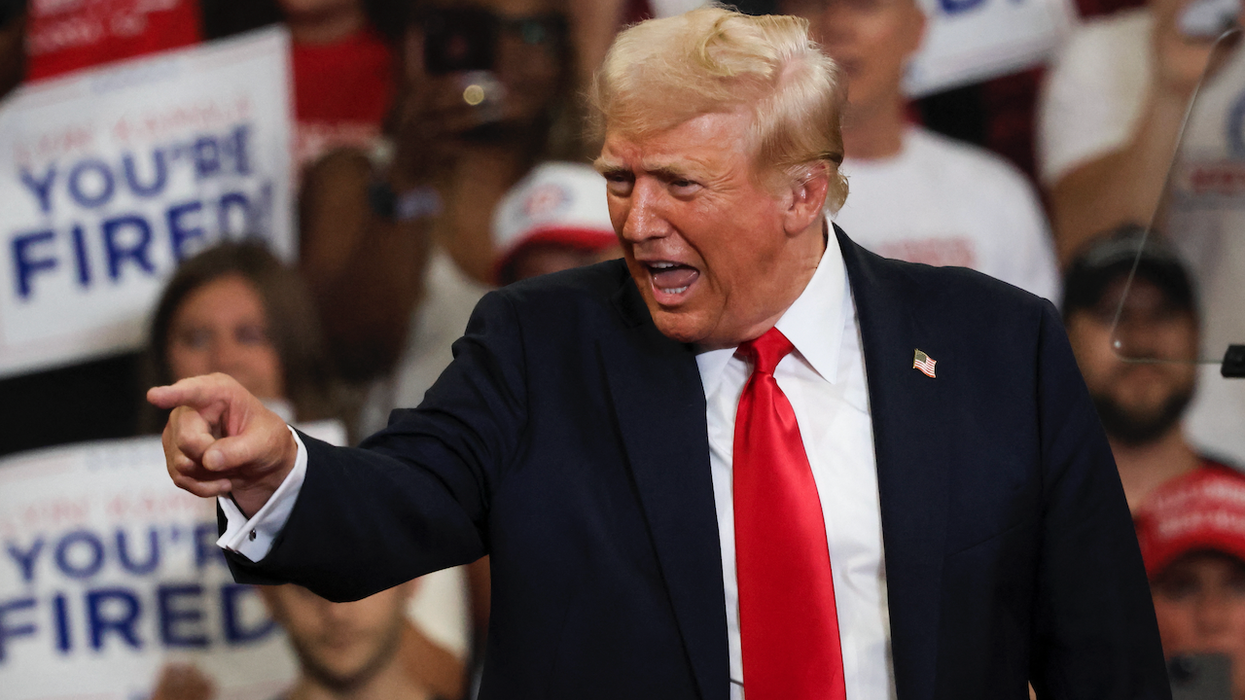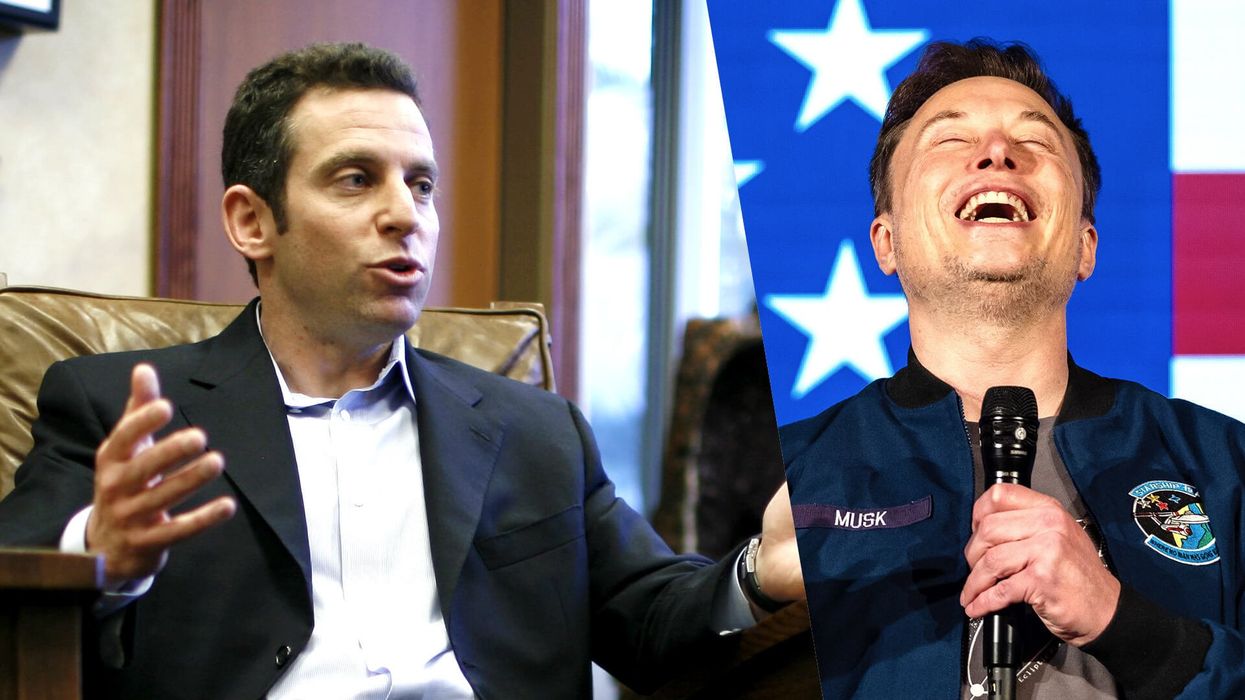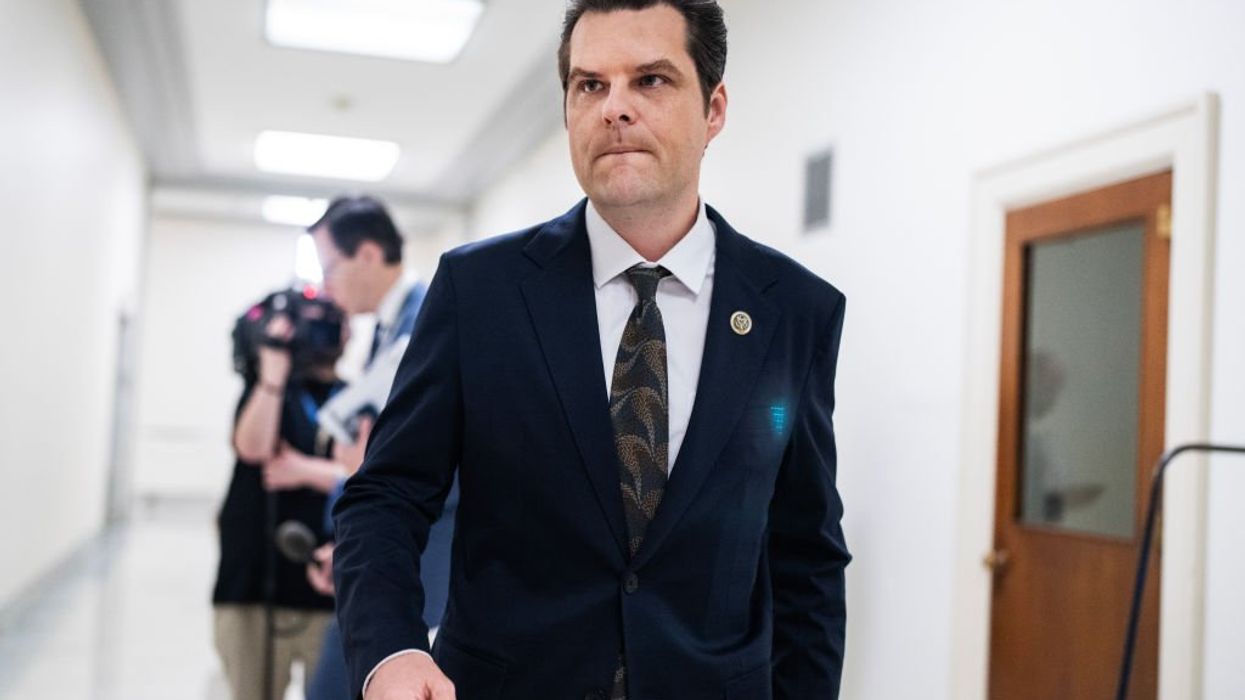
© 2024 Blaze Media LLC. All rights reserved.
"The foundation is the Koran."
Those with a functioning memory of the years during which George W. Bush was President will recall only too well the constant furor on the Left over the administration's supposed obsession with the idea of bringing theocracy to bear in America. This complaint was especially shrill in regards to the idea of voucherizing education, an idea that made many a progressive sit bolt upright in bed, sweating and shaking at the idea that someone, somewhere might hear the word "God" in an educational context. "Why," they complained, "if we let him get away with it, the President would probably model all our schools after seminaries!"
Fortunately for us, those nightmarish days of theocratic overreach are past. No legislator in Barack Obama's Democratic party would ever be so backwards, so barbaric as to suggest that America should ever model its educational institutions after religious schools.
Oh. Well, never mind, then.
For those who are wondering, the video posted above depicts Muslim Congressman Andre Carson, of the 7th District of Indiana, voicing his belief that America's school system would be improved if schools were modeled after "madrasas." For those that don't know, madrasas are Islamic religious schools - schools that, according to at least one State Department report, have been accused of fostering anti-American, terrorist sympathies. Specifically, the report singled out the Pakistani educational system, where madrasas are common:
Hosting over 10,000 madrasas, Pakistan’s religious and public educational infrastructure are of ongoing concern in the United States. In an economy that is marked by extreme poverty and underdevelopment, costs associated with Pakistan’s cash-strapped public education system have led many Pakistanis to turn to madrasas for free education, room, and board. Links between Pakistani madrasas and the ousted Afghan Taliban regime, as well as alleged connections between some madrasas and Al Qaeda, have led some observers consider the reform of Pakistan’s madrasa system as an important component of combating anti-U.S. terrorism and in helping to stabilize the recently-formed Afghan government.In recommending increased U.S. attention to “actual or potential terrorist sanctuaries,” the 9/11 Commission’s final report singled out “poor education” in Pakistan as “a particular concern,” citing reports that some madrasas “have been used as incubators for violent extremism.” These reports received new and more urgent attention following reports that one of the four suicide bombers that carried out the July 2005 terrorist attacks on the London transportation system had spent time at a Pakistani madrasa with alleged links to extremists. In response, Pakistani authorities renewed plans to require all madrasas to register with the government and provide an account of their financing sources. The government had previously offered incentives to madrasas that agreed to comply with registration procedures, including better training, salaries, and supplies. Madrasa leaders reportedly agreed to the registration and financial accounting requirements in September 2005, but succeeded in preserving an anonymity provision for their donors. As of January 2006, approximately 7,000 of Pakistan’s estimated 13,000 madrasas had registered with authorities. In a more controversial step, the Pakistani government also demanded that madrasas expel all of their foreign students by December 31, 2005. Of an estimated 1,700 foreign madrasa students, 1,000 had reportedly left Pakistan by January 1, 2006. Some nationalist and Islamist groups have vehemently resisted the government’s efforts, and authorities have made public statements indicating that they do not plan to use force or shut down noncompliant madrasas in order to enforce the directives.
Carson is either willfully unaware of these issues, or dismisses them for reasons he has not made clear yet. To be fair to him, just because there are problems with the institution in one country does not mean there are problems in every country, nor that there would necessarily be problems in this country. Moreover, Carson's reasons for supporting the introduction of madrasa-style learning are, with the exception of one disturbing statement that "the foundation [of education] is the Koran," basically secular. He cites madrasas' ability to cope with multiple learning styles, for instance, and claims they employ an educational model to facilitate innovation.
Fair enough, but if these concerns are what Carson wants to see addressed, what confuses us is why he brings up madrasas as his example in the first place. Surely they are not the only schools that employ this model. Perhaps, given that he is one of two Muslim congressmen in the United States, he is simply speaking about what he knows best. But if that's the case, one has to wonder who he fancies himself a congressman for - the people of Indiana, or simply the Muslims he appears to be speaking to in this video.
H/t: The Daily Caller
Want to leave a tip?
We answer to you. Help keep our content free of advertisers and big tech censorship by leaving a tip today.
Want to join the conversation?
Already a subscriber?
more stories
Sign up for the Blaze newsletter
By signing up, you agree to our Privacy Policy and Terms of Use, and agree to receive content that may sometimes include advertisements. You may opt out at any time.
© 2024 Blaze Media LLC. All rights reserved.
Get the stories that matter most delivered directly to your inbox.
By signing up, you agree to our Privacy Policy and Terms of Use, and agree to receive content that may sometimes include advertisements. You may opt out at any time.


